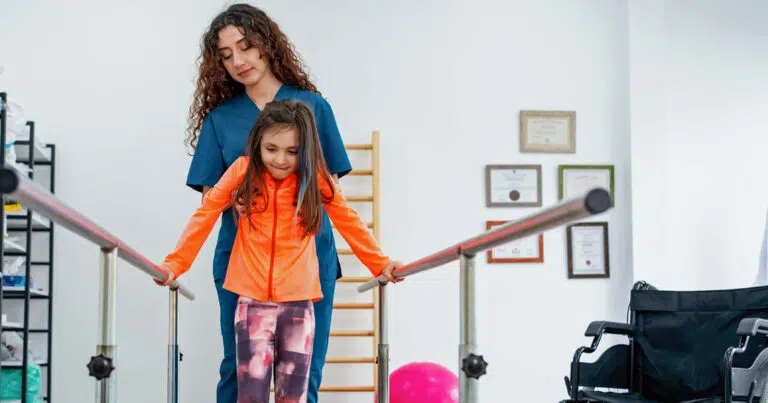SLP Career Guide
Looking for a different career guide?
Overview
Speech Language Pathologists (SLPs) are healthcare professionals specializing in diagnosing and treating communication disorders and speech-related difficulties. They work with individuals of all ages, from children to older adults, who experience challenges in speech, language, fluency or swallowing. SLPs play a critical role in helping patients improve their communication skills and quality of life by developing personalized treatment
Education
To become a Speech Language Pathologist, aspiring individuals must complete a Master of Science in Speech-Language Pathology from an accredited program. These graduate degree programs typically take two years to complete. After obtaining the degree, graduates must complete a clinical fellowship under the supervision of a licensed SLP. To practice independently, SLPs must obtain a state license, which usually involves
Qualifications

Skills
Staff and Travel SLPs need a diverse set of skills to excel in their profession. They must have a comprehensive understanding of speech and language disorders, swallowing disorders and communication development. Strong interpersonal and communication skills are essential for building rapport with patients, understanding their needs and explaining treatment plans to them and their families. SLPs should be
Responsibilities
The primary responsibility of a Speech Language Pathologist is to assess and diagnose communication disorders in patients. They conduct evaluations to identify speech, language and swallowing difficulties and formulate treatment plans accordingly. SLPs may use various therapeutic techniques, exercises and assistive devices to help patients improve their communication skills. They work with patients one-on-one or in group settings, providing ongoing
Salary Insights
The average salary for a SLP is $2,243.46 per week.
Last updated on December 20, 2025. Based on active jobs on Vivian.com.
Pros & Cons
Pros of becoming a Speech Language Pathologist include the opportunity to positively impact patients' lives by helping them improve their communication and swallowing abilities, the potential for career advancement in specialized areas and the satisfaction of working with diverse populations and age groups. This profession offers a rewarding and fulfilling career in healthcare.
However, there are some challenges associated with this
Some of the content on this page was enhanced using artificial intelligence.
Join over 1 million healthcare workers that are getting a head start with Vivian.
Join Vivian





